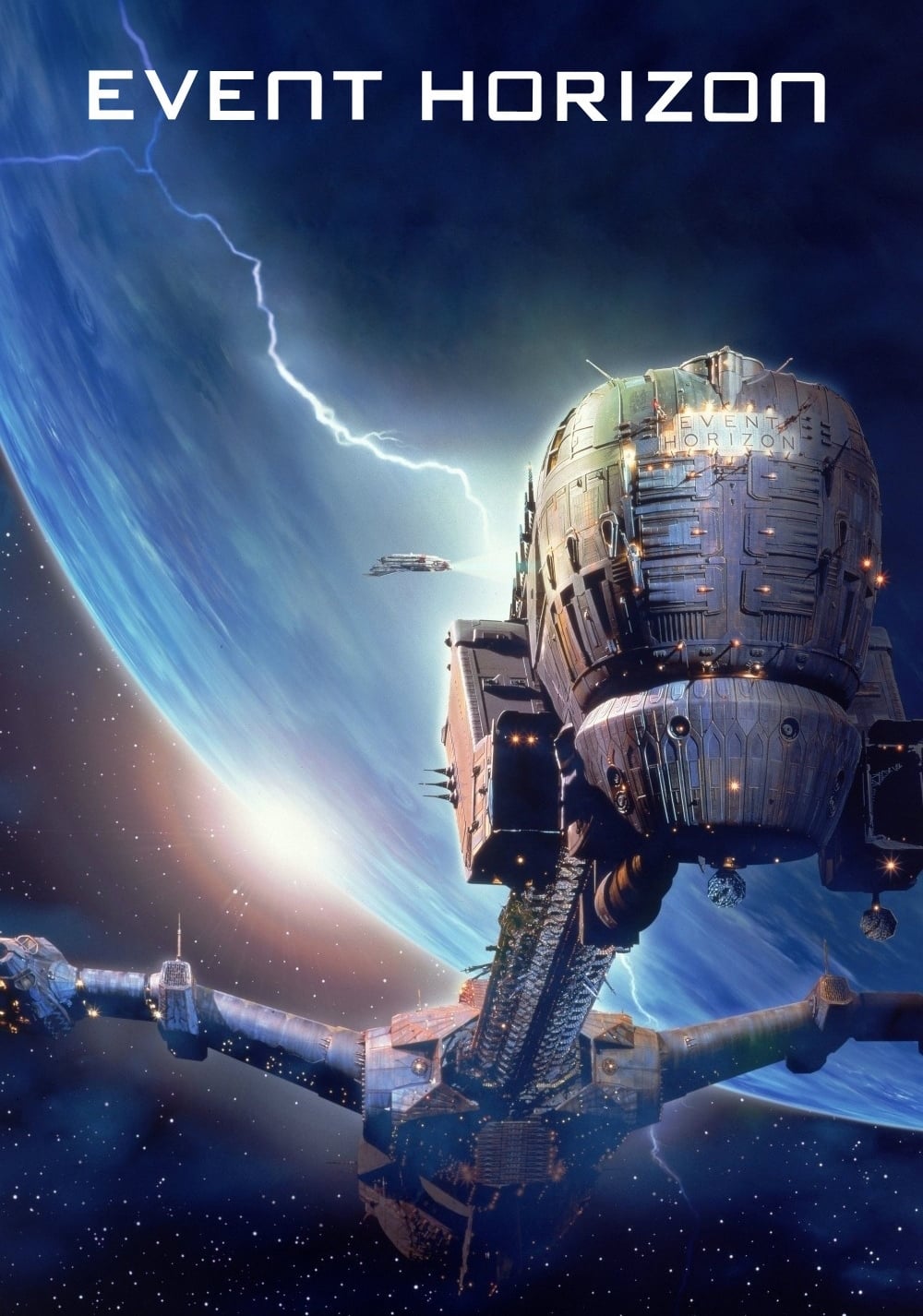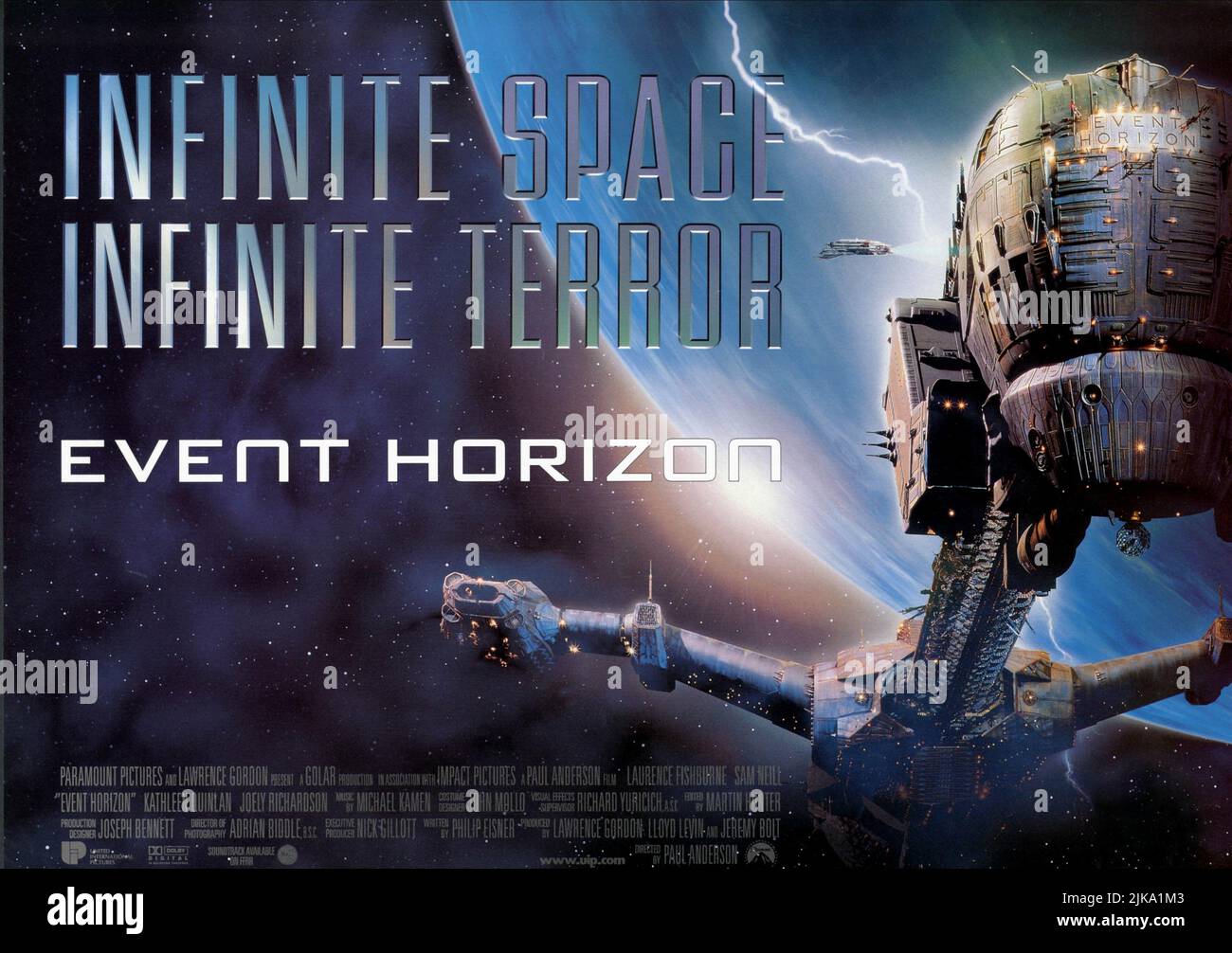Exploring The Thrilling Depths Of Event Horizon Movie
Event Horizon movie has captivated audiences worldwide with its dark, psychological twist on the science fiction genre. Released in 1997, this film explores the mysterious and terrifying consequences of humanity's quest for interstellar travel. Directed by Paul W.S. Anderson, Event Horizon delves into themes of dimensional travel, human psychology, and the consequences of tampering with forces beyond our understanding.
Set in the year 2047, Event Horizon centers around a rescue mission to retrieve the titular ship, which disappeared during its maiden voyage seven years earlier. The story takes viewers on an intense journey through space, blending elements of horror and science fiction in a way that challenges conventional genre boundaries. With its haunting atmosphere and thought-provoking narrative, the film remains a cult classic today.
This article will provide an in-depth analysis of Event Horizon movie, exploring its plot, characters, themes, and lasting impact on popular culture. Whether you're a long-time fan or new to the film, this comprehensive guide will enhance your understanding and appreciation of this groundbreaking cinematic experience.
Read also:Dead Friends Forever Understanding The Concept And Its Impact
Biography
Plot Overview
Main Characters
Core Themes
Horror Elements
Science Fiction Aspects
Production Details
Critical Reception
Cultural Legacy
In-Depth Analysis
Biography
Event Horizon was conceived by writer Philip Eisner and director Paul W.S. Anderson, who sought to create a unique blend of science fiction and psychological horror. The film's development began in the early 1990s, with the creative team drawing inspiration from classic sci-fi novels and horror films. Below is a summary of key production details:
| Release Date | August 8, 1997 |
|---|---|
| Director | Paul W.S. Anderson |
| Writer | Philip Eisner |
| Production Company | Impact Pictures, Studio Canal |
| Box Office | $41.7 million (worldwide) |
Plot Overview
The story unfolds when the crew of the Lewis and Clark spacecraft is dispatched to investigate the disappearance of the Event Horizon, a prototype vessel capable of faster-than-light travel. After locating the ship near Neptune, the crew discovers evidence of a catastrophic event involving the ship's experimental gravity drive. As tensions rise, the crew begins to experience disturbing phenomena that challenge their sanity and survival.
Key Plot Points
- The Event Horizon's gravity drive opens a portal to a dimension of pure chaos and suffering.
- Captain Miller's crew faces increasingly violent hallucinations and supernatural encounters.
- A mysterious survivor from the original crew, Dr. William Weir, reveals the true nature of the Event Horizon's mission.
- The film builds to a climactic confrontation between human will and otherworldly forces.
Main Characters
Event Horizon features a diverse ensemble cast, each character contributing to the film's psychological depth:
Captain Miller
Played by Laurence Fishburne, Captain Miller serves as the moral center of the crew. His leadership is tested as the crew faces increasingly surreal challenges.
Dr. William Weir
Sam Neill portrays Dr. Weir, the enigmatic scientist responsible for the Event Horizon's design. His knowledge becomes both a blessing and a curse for the rescue mission.
Read also:Paige Young Sheldon The Rising Star Of Modern Entertainment
Lieutenant Starck
Joely Richardson plays Lieutenant Starck, the ship's navigator and a key figure in unraveling the mystery of the Event Horizon's disappearance.
Core Themes
Event Horizon explores several profound themes that resonate with audiences:
- The dangers of tampering with forces beyond human comprehension.
- The fragility of human sanity in the face of cosmic horror.
- The ethical implications of scientific advancement.
- The psychological impact of isolation and fear in space.
Horror Elements
While classified as a science fiction film, Event Horizon incorporates numerous horror elements:
Supernatural Phenomena
The film's portrayal of a dimension of pure suffering draws inspiration from classic horror tropes. The visual design of this realm, combined with its psychological effects on the crew, creates an atmosphere of dread and unease.
Psychological Terror
Event Horizon excels in depicting the mental breakdowns of its characters, using innovative special effects and sound design to enhance the horror elements.
Science Fiction Aspects
The film's scientific concepts are grounded in theoretical physics:
- The gravity drive technology represents a plausible solution to faster-than-light travel.
- The exploration of alternate dimensions aligns with contemporary scientific theories.
- Character interactions with advanced technology reflect real-world concerns about artificial intelligence and automation.
Production Details
Event Horizon's production involved groundbreaking special effects and innovative set design:
Visual Effects
The film utilized a combination of practical effects and CGI to create its otherworldly landscapes and creatures. This hybrid approach ensured a seamless blend of realism and fantasy.
Set Design
The Event Horizon ship's interior was designed to reflect both its advanced technology and the psychological toll it takes on its crew. The attention to detail in set construction contributes significantly to the film's immersive atmosphere.
Critical Reception
Upon its release, Event Horizon received mixed reviews from critics. However, it has since gained recognition as a cult classic:
- Rotten Tomatoes reports a 55% approval rating from critics.
- Audience scores have steadily improved over time, reflecting the film's growing popularity.
- Many modern critics praise the film's innovative approach to blending genres.
Cultural Legacy
Event Horizon's influence extends beyond its initial release:
- It inspired numerous science fiction and horror films that followed.
- Its exploration of psychological horror remains relevant in contemporary cinema.
- The film's themes continue to resonate with audiences interested in the intersection of science and philosophy.
In-Depth Analysis
Event Horizon stands as a testament to the possibilities of genre blending in cinema:
Thematic Depth
The film's exploration of existential questions and moral dilemmas elevates it beyond typical science fiction fare. Its willingness to tackle complex subjects ensures its place in cinematic history.
Technical Innovation
From its groundbreaking visual effects to its innovative sound design, Event Horizon pushed the boundaries of what was possible in late 1990s filmmaking.
As we conclude our exploration of Event Horizon movie, it's clear that this film remains a significant contribution to both the science fiction and horror genres. Its willingness to challenge conventions and explore complex themes continues to captivate audiences worldwide. We invite you to share your thoughts in the comments below, explore related articles on our site, and join the ongoing conversation about this cinematic masterpiece.
Cinépolis Victory Park: The Ultimate Moviegoing Experience
Vermeil And Gold: A Comprehensive Guide To Luxurious Jewelry
Show Me Genitals: A Comprehensive And Sensitive Exploration


